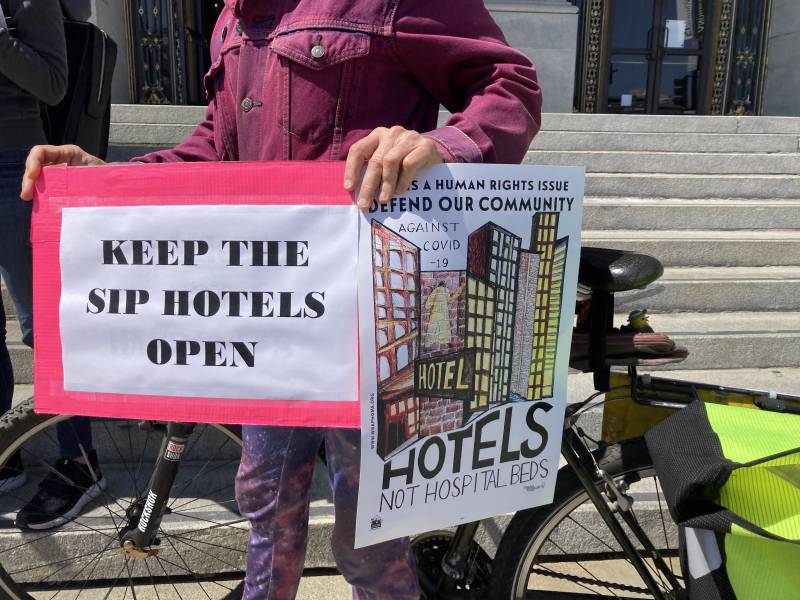San Francisco plans to extend through September 2022 a shelter-in-place program that provides hotel rooms for unhoused people, city officials announced Thursday.
The decision comes a month after advocates for people experiencing homelessness protested in front of City Hall, calling for a continuation of the program that has now served over 3,700 residents since it began in April 2020.
San Francisco’s Department of Homelessness and Supportive Housing began phasing out the program — part of Project Roomkey, a statewide homelessness relief initiative — in June, when COVID-19 infection rates in San Francisco were declining. Since then, the city has closed six of 25 hotel sites.
The city had planned to incrementally phase out the remaining locations through next June, saying it lacked the funds to continue operating them beyond then.
The announcement of the three-month extension follows the Federal Emergency Management Agency’s authorization of an additional $46 million for the program, with the city putting up an extra $21 million.

